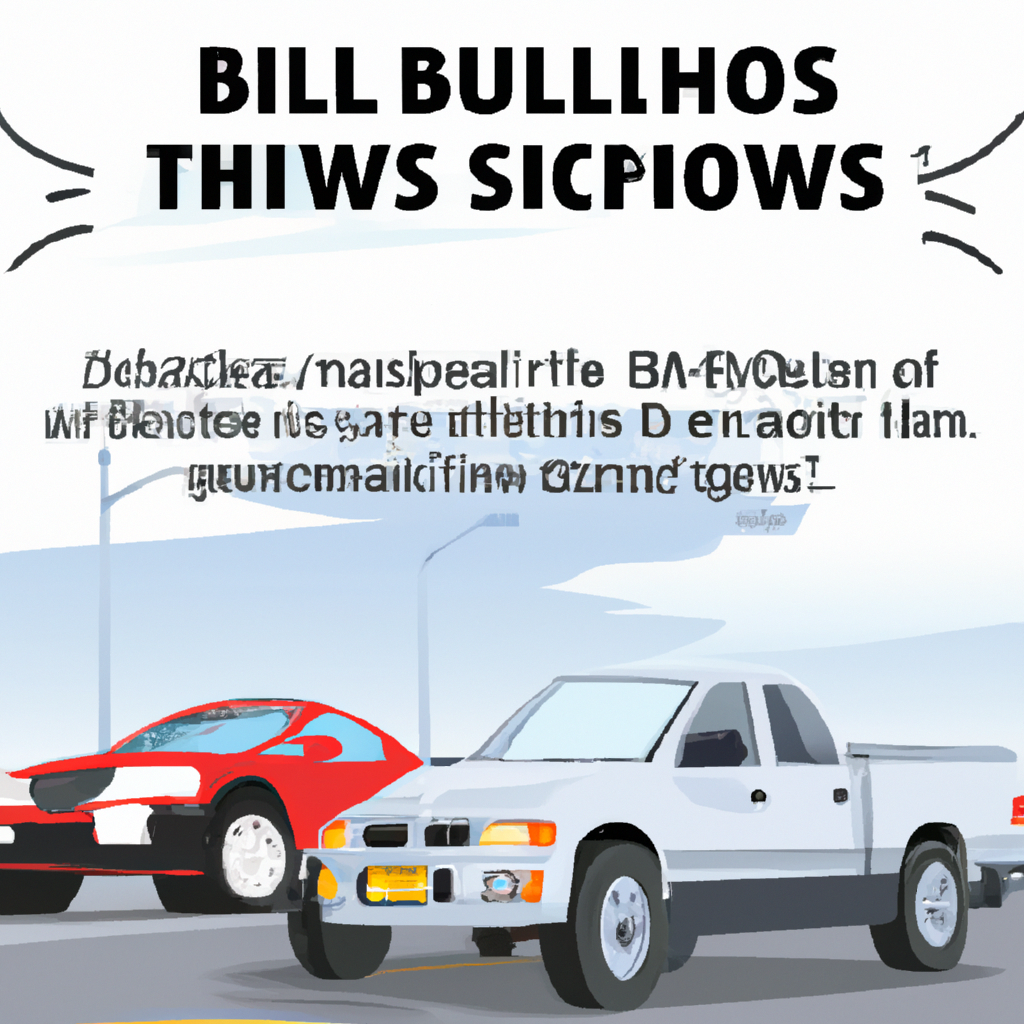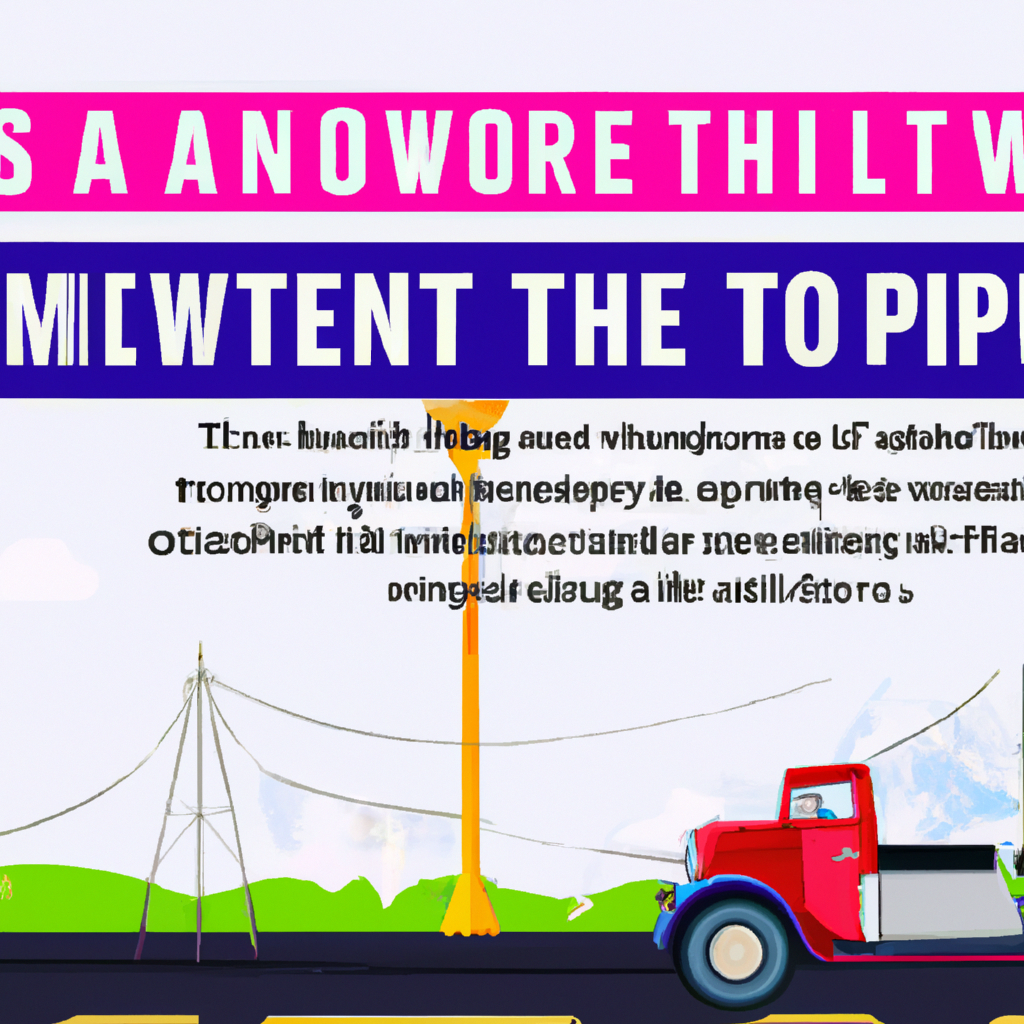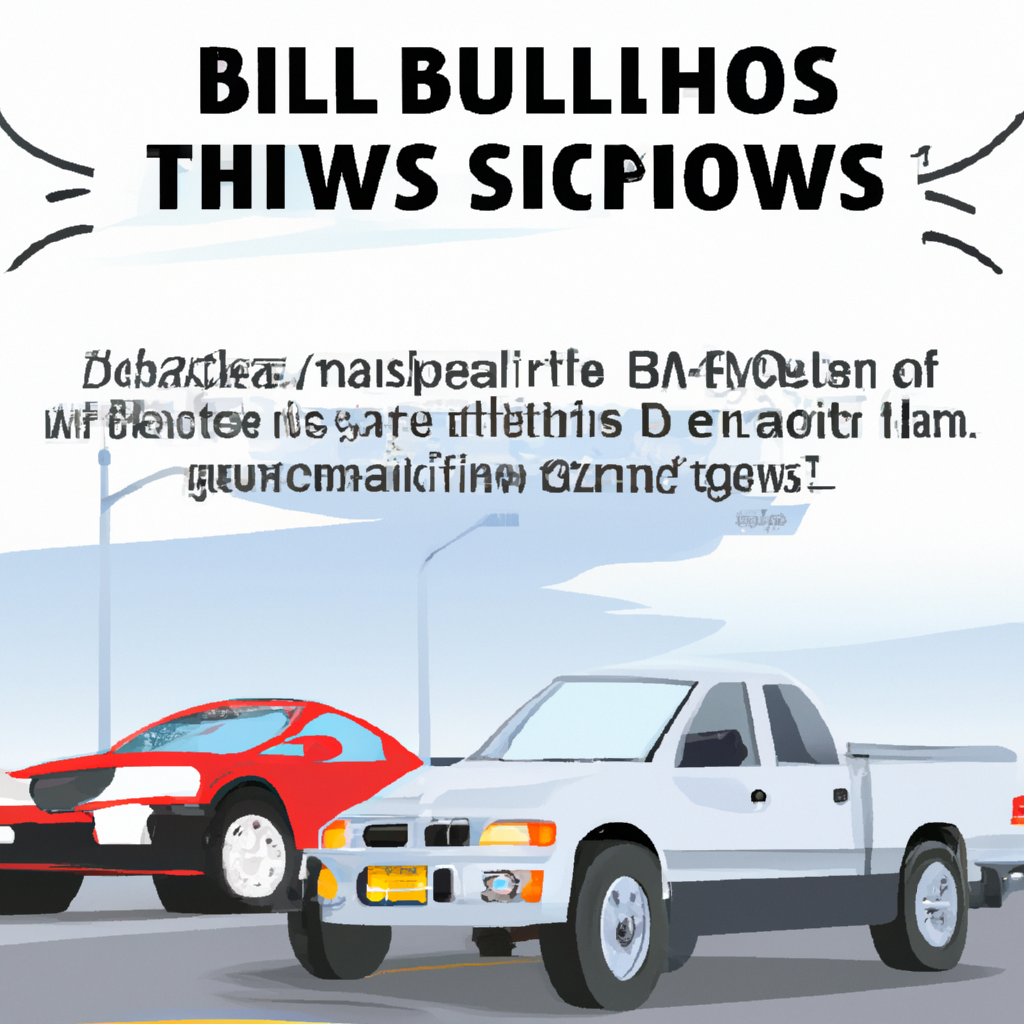A towing bill is a document that outlines the charges incurred when a vehicle needs to be towed. This comprehensive assessment includes various elements such as the cost of the actual tow service, any additional labor or equipment required, as well as any applicable administrative fees. Whether it’s due to a breakdown, accident, or illegal parking, understanding what a towing bill entails is crucial for both vehicle owners and towing companies to ensure full transparency and fair compensation. In this article, we will explore the different components of a towing bill and shed light on its significance in the world of transportation.

What Is a Towing Bill?
A towing bill is a document that outlines the services provided by a towing company and the associated costs for those services. It serves as a record of the details related to the towing of a vehicle and provides a breakdown of the fees that the vehicle owner is responsible for paying. Towing bills are essential for both the towing company and the vehicle owner as they ensure transparency and clarity in the towing process.
Definition and Purpose of a Towing Bill
A towing bill serves several purposes. Firstly, it helps in identifying the specific towing services that were provided. This includes important details such as the type of service (e.g., roadside assistance, accident recovery), the reason for the tow, and any special equipment or procedures used during the towing process. This information is crucial for both the towing company and the vehicle owner to have a clear understanding of the events that led to the towing.
Recording essential information is another key purpose of a towing bill. This includes capturing details about the vehicle, such as its make, model, color, and license plate number. The bill also records the time and date of the towing, which can be useful for tracking the progress of the towing process and for resolving any disputes that may arise in the future.
Determining the cost of the towing service is another critical aspect of a towing bill. The bill should clearly outline the fees associated with the towing, including both the initial service fee and any additional charges that may apply. Transparent and accurate cost calculations are essential in establishing trust between the towing company and the vehicle owner.
Outlining the payment terms is the final purpose of a towing bill. This includes specifying the due date for payment, the accepted payment methods, and any penalties or late fees that may be imposed for delayed payments. By clearly communicating the payment terms, the towing company can ensure that the vehicle owner understands their obligations and can make the necessary arrangements to settle the bill promptly.

Components of a Towing Bill
A towing bill consists of various components that provide a comprehensive overview of the towing process and the associated charges. These components include:
Towing Service Information
This section of the towing bill includes details about the specific towing service that was provided. It mentions the type of service, such as emergency towing, accident recovery, or roadside assistance. Additionally, it may provide information about any specialized equipment or procedures used during the towing process, such as winching or flatbed towing.
Vehicle Details
The vehicle details section includes comprehensive information about the towed vehicle. This includes the make, model, year, color, and license plate number. By capturing these details, the towing company can ensure that there are no mix-ups or confusion regarding the identity of the towed vehicle.
Time and Date of Towing
This section records the exact time and date when the towing took place. This information is particularly relevant if there are any disputes or discrepancies regarding the timing of the towing. It allows both the towing company and the vehicle owner to have a clear timeline of events and helps in resolving any issues that may arise.
Towing and Storage Fees
The towing and storage fees section represents the bulk of the charges outlined in a towing bill. It specifies the amount charged for the initial tow and any additional fees incurred for transporting the vehicle to a storage facility. These fees may vary depending on the distance traveled, the type of vehicle being towed, and the duration of storage.
Additional Charges
In addition to the towing and storage fees, there may be additional charges listed on the towing bill. These charges can include administrative fees, impound fees, notification fees, recovery fees, or mileage charges. Each additional charge should be clearly explained on the bill, providing transparency to the vehicle owner regarding the breakdown of costs.
Understanding Towing Fees
To gain a comprehensive understanding of a towing bill, it is essential to be familiar with the various types of fees that may be included. These fees can vary depending on the specific circumstances of the towing and storage process. Some common types of towing fees include:
Towing Service Fee
The towing service fee is the base charge for the actual towing service. It covers the cost of dispatching a tow truck, hooking up the vehicle, and transporting it to the desired location or storage facility. The towing service fee is usually calculated based on factors such as the distance traveled or the type of vehicle being towed.
Storage Fee
If the towed vehicle needs to be stored at a designated facility, a storage fee may apply. This fee covers the cost of keeping the vehicle in a secure location until it is retrieved by the owner. Storage fees are typically assessed on a daily or weekly basis, depending on the duration of storage.
Mileage Fee
In some cases, towing companies may charge a mileage fee in addition to the towing service fee. This fee is based on the distance traveled from the point of origin to the destination or storage facility. The mileage fee is typically calculated per mile and is intended to cover the cost of fuel and vehicle depreciation.
Administrative Fee
An administrative fee may be included on the towing bill to cover the administrative costs associated with processing the paperwork and managing the logistical aspects of the towing process. This fee helps offset the time and resources spent on documenting and organizing towing-related transactions.
Impound Fee
If a vehicle has been impounded as a result of legal action, an impound fee may be charged. Impound fees can vary depending on local regulations and the specific circumstances that led to the impoundment of the vehicle. These fees cover the costs incurred by the towing company in handling the impoundment process.

Additional Charges on a Towing Bill
In addition to the standard towing fees, there may be various additional charges that can appear on a towing bill. These charges are often specific to certain situations and can significantly impact the total cost of the towing service. Some of the most common additional charges include:
Administrative Fees
Administrative fees are charged to cover the administrative costs incurred by the towing company. These fees can include paperwork processing, record-keeping, and any other administrative tasks associated with the towing process.
Impound Fees
Impound fees are charged when a vehicle is legally impounded by law enforcement or other authorities. These fees cover the costs associated with the storage, security, and administration of the impounded vehicle.
Notification Fee
Notification fees may be applied if the towing company needs to send official notices or notifications to the vehicle owner. These fees cover the costs of preparing and mailing or delivering the notifications.
Recovery Fee
If a vehicle requires additional effort or specialized equipment for recovery, a recovery fee may be charged. This fee accounts for the extra time, resources, and equipment required to safely retrieve the vehicle.
Mileage Charges
Mileage charges may be imposed when the vehicle needs to be transported over a long distance. These charges are typically calculated based on the distance traveled and are intended to cover the fuel expenses and wear and tear on the towing vehicle.
Documenting Towing and Storage Fees
To ensure transparency and clarity, a towing bill should provide an itemized breakdown of all charges and fees associated with the towing service. This allows the vehicle owner to understand the specific costs they are responsible for and helps in avoiding any misunderstandings or disputes. Some key elements of documenting towing and storage fees include:
Itemized Breakdown of Charges
The towing bill should clearly list each charge and fee with its corresponding amount. This itemized breakdown ensures that the vehicle owner can see exactly how each fee contributes to the total cost. By providing a detailed breakdown, the towing company demonstrates transparency and helps instill confidence in the vehicle owner.
Explanation of Additional Fees
Any additional charges or fees beyond the standard towing and storage fees should be clearly explained on the towing bill. This includes providing a description of each additional fee and the reason for its application. Transparent explanations of additional fees help the vehicle owner understand why they are being charged and provide an opportunity to address any concerns or questions.
Proper Identification of Payment Terms
The towing bill should clearly outline the payment terms, including the due date for payment and the accepted payment methods. Any penalties or late fees for delayed payments should also be clearly stated. By specifying the payment terms, the towing company ensures that the vehicle owner understands their obligations and can make the necessary arrangements to settle the bill promptly.

Legal Considerations
Towing bills are subject to various laws and regulations designed to protect both the towing company and the vehicle owner. Familiarizing yourself with these legal considerations can help ensure that your rights as a vehicle owner are protected. Some key legal considerations related to towing bills include:
Towing Regulations and Laws
Towing companies must adhere to specific regulations and laws governing the towing industry. These regulations can vary depending on the jurisdiction, but they generally cover areas such as licensing, insurance requirements, and acceptable practices. It is important for towing companies to comply with these regulations to provide a legal and professional service.
Towing Company’s Responsibilities
Towing companies have certain responsibilities when it comes to providing towing services and issuing towing bills. These responsibilities include accurately documenting the details of the towing service, properly storing any impounded vehicles, and ensuring transparency in the billing process. By fulfilling these responsibilities, towing companies can maintain their credibility and reputation.
Consumer Protections
As a vehicle owner, you have certain rights and protections when dealing with towing companies. This includes the right to receive a clear and itemized bill, dispute any inaccuracies or unfair charges, and seek resolution through proper channels. Familiarizing yourself with these consumer protections can help you navigate the towing process more effectively and with greater confidence.
Contesting a Towing Bill
If you believe that a towing bill contains errors or unfair charges, you have the right to contest it. Contesting a towing bill involves several steps to ensure your concerns are properly addressed. Some key steps to consider when contesting a towing bill include:
Reviewing the Bill for Accuracy
Carefully review the towing bill to identify any inaccuracies or discrepancies. Pay attention to the itemized charges, additional fees, and payment terms. If you believe any information is incorrect or unfair, take note of it for further action.
Gathering Relevant Evidence
Collect any evidence that supports your claim. This may include photographs of parking signs, witness statements, or any documentation related to the towing incident. Evidence can help support your position when discussing the towing bill with the towing company.
Contacting the Towing Company
Reach out to the towing company to discuss your concerns. Provide specific details about the issue and present any relevant evidence you have gathered. It is essential to maintain a professional and respectful tone during these discussions to foster open communication.
Filing a Complaint or Dispute
If you are unable to resolve the issue directly with the towing company, you may need to escalate the matter by filing a formal complaint or dispute. Contact your local consumer protection agency or regulatory body to understand the appropriate steps and procedures for filing a complaint. Be prepared to provide all relevant documentation and evidence to support your claim.
Consequences of Unpaid Towing Bills
Failing to pay a towing bill can have various consequences, which can be both inconvenient and costly for the vehicle owner. It is important to understand these potential consequences to avoid any further complications. Some potential consequences of unpaid towing bills include:
Vehicle Retrieval Delay
Unpaid towing bills can result in a delay in retrieving your vehicle. Towing companies may refuse to release the vehicle until the outstanding amount is paid in full. This can cause inconvenience and disrupt your daily activities, especially if the vehicle is essential for transportation.
Potential Legal Actions
Towing companies have the right to pursue legal actions to recover unpaid towing bills. This can involve filing a lawsuit or seeking judgment against the vehicle owner. Legal actions can result in additional expenses and may have long-term implications for your financial and legal standing.
Damaged Credit
Unpaid towing bills can negatively impact your credit score. Towing companies may report unpaid debts to credit bureaus, which can lower your credit score and make it more difficult to obtain credit in the future. It is crucial to settle any outstanding towing bills to avoid damaging your creditworthiness.
Vehicle Seizure
In some cases, if a towing bill remains unpaid for an extended period, the towing company may have the right to seize the vehicle as collateral. This can lead to the further loss of your vehicle and additional legal complications.
Tips to Avoid Excessive Towing Costs
To prevent incurring excessive towing costs, it is important to follow certain guidelines and best practices. By being proactive and cautious, you can minimize the chances of needing a towing service and reduce the potential financial burden. Some tips to avoid excessive towing costs include:
Understanding Parking Regulations
Familiarize yourself with local parking regulations and restrictions to avoid parking violations. Pay attention to signage, time limits, and designated parking areas. By following the rules, you can prevent your vehicle from being towed due to parking infractions.
Maintaining Valid Registration and Insurance
Ensure that your vehicle’s registration and insurance are always up to date. This includes renewing both documents before they expire. Having valid registration and insurance not only ensures compliance with the law but also reduces the risk of your vehicle being impounded or towed due to administrative issues.
Promptly Retrieving Towed Vehicles
If your vehicle has been towed, retrieve it promptly to avoid incurring additional storage fees. Delaying the retrieval process can significantly increase the overall towing costs. Be mindful of the specified retrieval time and location provided by the towing company.
Choosing Towing Companies Carefully
When selecting a towing company, do your research and choose a reputable and reliable provider. Consider factors such as their licensing and credentials, customer reviews, response time, and pricing transparency. Opting for a trustworthy towing company can help ensure a fair and professional towing experience.
In conclusion, a towing bill is an essential document that outlines the services provided by a towing company and the associated costs. It serves multiple purposes, including accurately recording essential information, determining the cost of the towing service, and outlining the payment terms. Understanding the components, fees, and potential additional charges of a towing bill is crucial for vehicle owners. Familiarizing yourself with legal considerations and knowing how to contest a towing bill, if necessary, can help protect your rights. Lastly, following certain tips and practices can help avoid excessive towing costs and the potential consequences of unpaid towing bills. By being knowledgeable and proactive, you can navigate the towing process with confidence and minimize any financial burdens.
